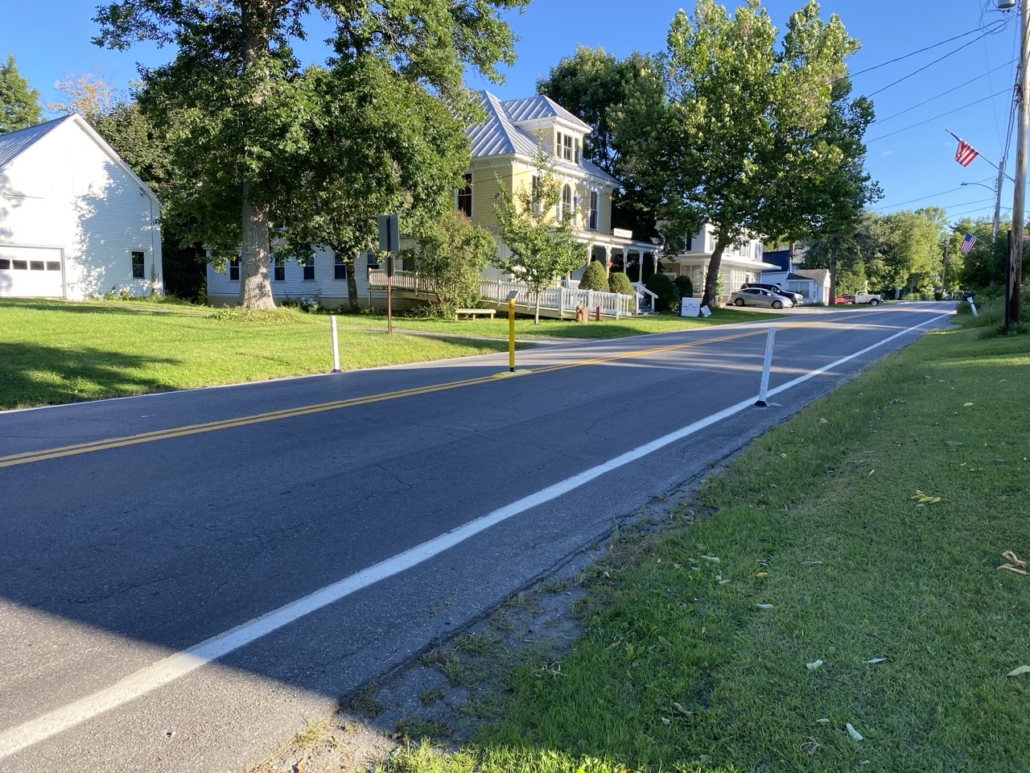At their Aug. 26 meeting, China select board members approved the final version of a Nov. 5 local ballot that will include asking voters to adopt or reject several documents.
In a series of unanimous votes, board members approved asking for voters’ action on:
— A “High-Impact Electric Transmission Line Moratorium Ordinance” that, if approved, would ban new electric transmission lines through China for 180 days, renewable by the select board for another 180 days.
— Amendments to Chapter 2 of the Land Development Code, a 69-page section titled “Use Ordinance” that says it “shall apply to all land uses and structures within the Town of China with special emphasis on the shoreland area.”
— Amendments to Chapter 11 of the Land Development Code, titled “Definitions.”
— The development district map that relates to ordinance changes approved in June to conform to the revised state law on affordable housing.
— The third amendment to China’s Tax Increment Financing (TIF) Program.
The moratorium ordinance was inspired by the LS Power transmission line, proposed in 2022 to bring wind-generated electricity from Aroostook County to a substation near Windsor. The project is currently on hold.
A public hearing at the beginning of the Aug. 26 China meeting attracted half a dozen people. Select board and audience members agreed the moratorium is a good idea, and voters should have a chance to enact it.
It is intended to provide time to develop and approve a local ordinance that would set standards and guidelines for future electric utility lines in town. Several towns along LS Power’s proposed route have already approved moratoria and developed ordinances.
Joshua Kercsmar, of Unity, vice-president of Preserve Rural Maine, called such ordinances ways for towns to regulate transmission lines, not to ban them. For example, he mentioned national best practices that recommend burying lines wherever possible, and locating them along highways.
China resident Joshua LaVerdiere recommended new lines use existing transmission corridors.
Preserve Rural Maine is a nonprofit organization founded in the summer of 2023 in response to the LS Power plan. Kercsmar said its members help towns develop appropriate ordinances, and offered to provide copies China could adapt.
The land use amendments were prepared primarily by China Planning Board members, especially board chairman Toni Wall. The TIF amendment was drafted by TIF Committee member Jamie Pitney and endorsed by the committee. Select board member Brent Chesley led expressions of appreciation to Pitney for his many hours of work that “saved the town a boatload of money.”
A public hearing on Nov. 5 warrant articles is scheduled for 6 p.m., Monday, Sept. 23, in the town office meeting room.
In addition to election preparations, select board members talked again about the long-discussed new secure storage space for official town records. They, building committee chairman Sheldon Goodine (who was expected at the Aug. 26 meeting, but did not attend) and others have considered an addition to the south side of the existing office building, or a remodeling of the old garage behind the old town house.
At the Aug. 26 meeting, Town Manager Rebecca Hapgood said funds are available to pay for an addition to the town office, at the earlier price of $267,489. The bulk of the money would come from the federal ARPA (American Rescue Plan Act) money that China needs to commit by the end of the year (or return it to Washington).
However, the price is probably outdated; and select board members are interested in potentially saving money by further exploring using the garage building. Hapgood said when she discussed with other staff members storing documents in a separate building across the parking lot, their reaction was, “Do you know how many times we access those records?”
Board members asked Hapgood to prepare up-to-date summaries of options and costs for a future discussion.
Weeks Mills Fire Chief William Van Wickler attended the Aug. 26 meeting to brief select board members on his department’s need for a new tanker. When their 1988 former oil truck was last inspected, the news was unexpectedly bad, he said – so bad that the department promptly sold it (for $2,000, having paid $3,500 for it).
Van Wickler is exploring one used-truck option, a 1996 vehicle currently owned by Chelsea. He intends to look into grant possibilities, though he said writing grant applications is not his specialty and he is not optimistic.
Nomination papers must be returned by Sept. 6
China’s local elections are Nov. 5. Signed nomination papers must be returned to the town office by the close of business Friday, Sept. 6, for candidates’ names to appear on the ballot.
China Town Clerk Angela Nelson reported Aug. 26 that there are still no candidates for a seat on the Regional School Unit #18 board of directors, or for three budget committee positions: District 2 (northeastern China), the secretary and the At Large representative (both elected from anywhere in town).
For three select board positions currently held by Blane Casey, Brent Chesley and Janet Preston, Edwin Bailey and Thomas Rumpf have turned in signed papers and Chesley, Tod Detre and Shawn McGlew are circulating papers.
Select board chairman Wayne Chadwick offered to join Van Wickler in an inspection of the Chelsea truck. Van Wickler intends to keep select board members updated on his search. Meanwhile, he said, his department still has two trucks, though it is without its main water supply.
In other business, Hapgood said she plans to end the 911 municipal sign program that provides residents with conspicuous house numbers by Nov. 30. Select board members approved.
The manager reminded those present that all town departments will be closed Monday, Sept. 2, for the Labor Day holiday.
The next regular select board meeting will be Monday evening, Sept. 9.
 by Mary Grow
by Mary Grow




 by The Town Line staff
by The Town Line staff
